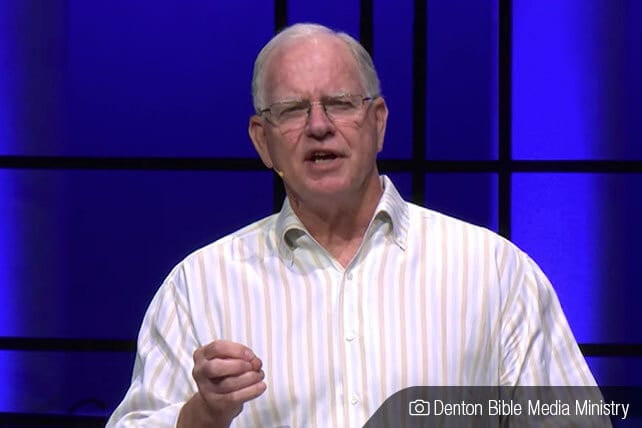Last weekend at Denton Bible Church in Denton, Texas, hundreds gathered to discuss a hot-button topic: “wokeness” and the church. During the two-day “Wokeness & the Gospel” conference, which viewers can stream for $20, panelists warned about what they call a Marxist movement that’s incompatible with Christianity.
How Denton Bible Church Conference Organizers Define Wokeness
For many people, wokeness is rolled into theological debates about social justice and Critical Race Theory (CRT). Its progressive-minded advocates strive toward a society free of racism, sexism, homophobia and other discrimination. Critics, meanwhile, call it anti-American, divisive and non-Christian.
Tommy Nelson, the 70-year-old senior pastor of Denton Bible Church and a conference speaker, says, “I have been in the ministry almost 50 years, and [wokeness] is the most insidious and dangerous and pervasive ideology that I have ever seen in all of my life, in all of my ministry. And it is dangerous to the Christian church as well as to our culture.”
Charles Stolfus, the church’s associate pastor, told a local newspaper, “Wokeness describes the belief among some who claim to have been ‘awakened’ to the idea that American society is so irredeemably racist that it must be overthrown through moral, political and economic revolution. It is an insidious belief system that holds that America is a nation founded on white supremacy and oppression and that these forces must be rooted out by any means necessary.”
Instead of viewing people “as individuals created in the image and likeness of God,” says Stolfus, wokeness categorizes them by groups, “whether male or female, black or white, gay or straight [and] then as either an oppressor or as an oppressed individual according to their group identities.” The movement also “favors the normalization of the LGBTQ identity,” he says.
READ: LGBTQ and the Church Podcast Series: A Conversation We Need to Have
Stolfus, a conference panelist, says wokeness threatens not just white men but the “dignity and individuality and personal responsibility” of all people. “Are we to be judged as individuals based upon our own responsible choices or on what our ancestors supposedly did several hundred years ago?” he asks. “Are we all entitled to equal justice and fair treatment under the law, or should the playing field be purposely tilted in favor of one group as opposed to another? Should we advance what are in effect racist policies in an effort ostensibly to correct perceived racism? The answer to these questions seems self-evident. Especially as a Christian.”
The gospel, said conference panelists, is the only answer for ending racism, changing hearts, and achieving true unity.
Protesters Take Issue With ‘Harmful Rhetoric’
A small group of people gathered outside Denton Bible Church to protest the conference. “We felt this was really harmful rhetoric coming into the community,” says Nathan Graham, founder of the grassroots Denton Interfaith Community Action. “We felt that [the conference] required a response from people of faith.” Protesters from various religious backgrounds held signs with messages about love and unity—and received mixed reactions from passing drivers. Security personnel informed the group it was trespassing, which Graham says reveals the organizers’ “vindictive view of the world and the Bible.”
Wokeness, Graham says, has origins in the African-American community and merely means staying alert to injustice, especially regarding race. Now wokeness “has come to mean any social justice,” and he accuses its critics of frightening people with talk of communism. “When attention is drawn to the suffering and oppression of some groups, and work starts being done to address this, privileged people start to get worried. They start to fear that something is going to be taken from them,” says Graham. “This has all happened before.”
Christians have a duty to address racism within churches and throughout society as a whole, Graham adds. “I think [churches] underestimate the influence they have.”

